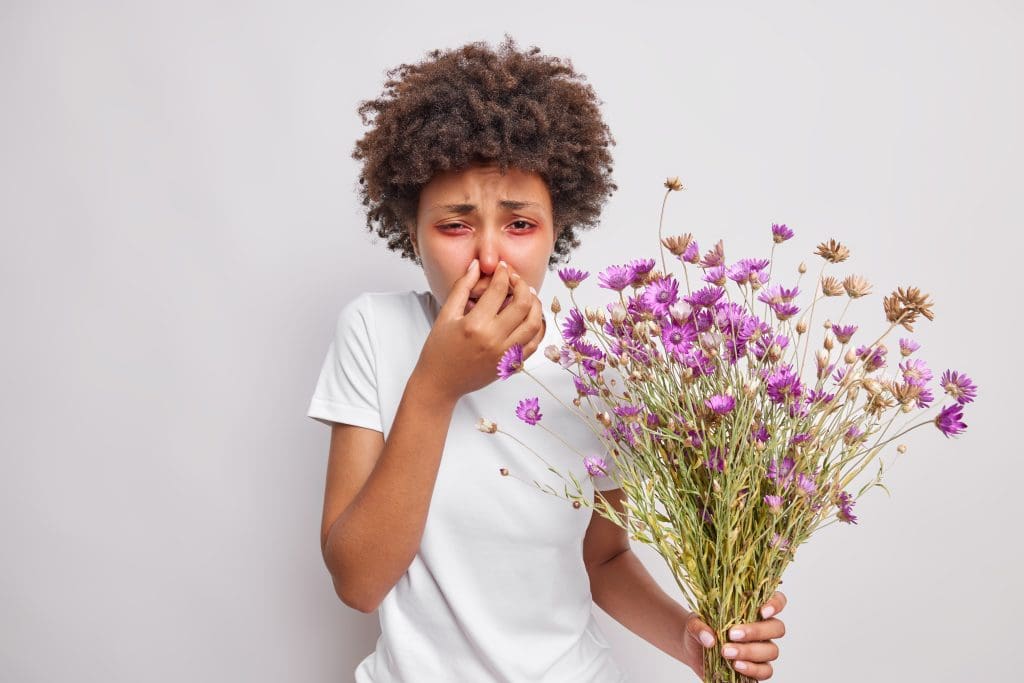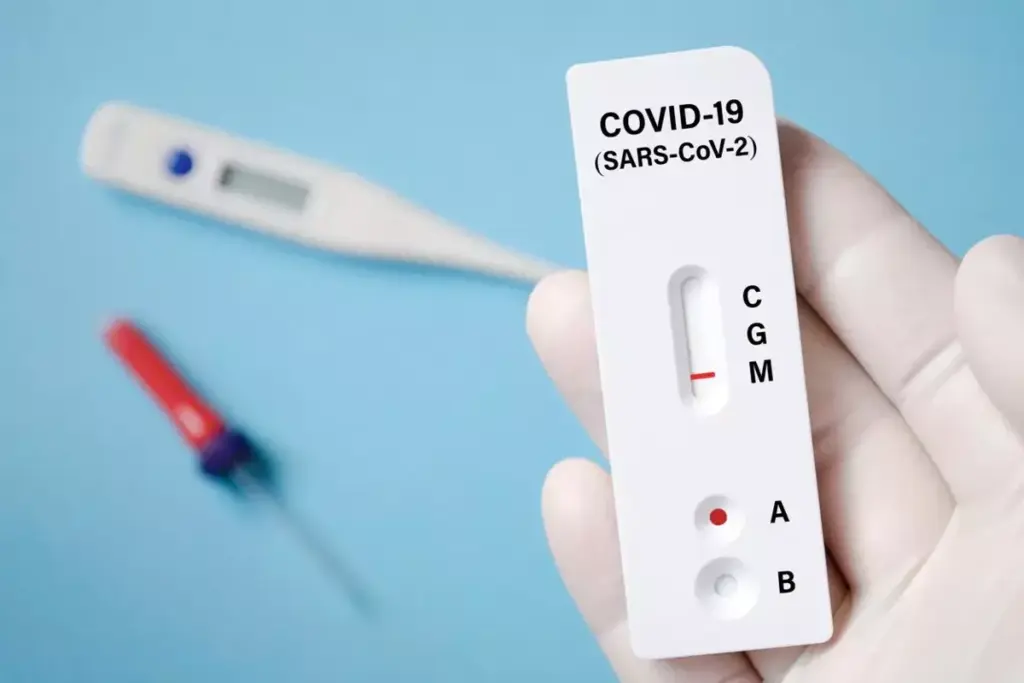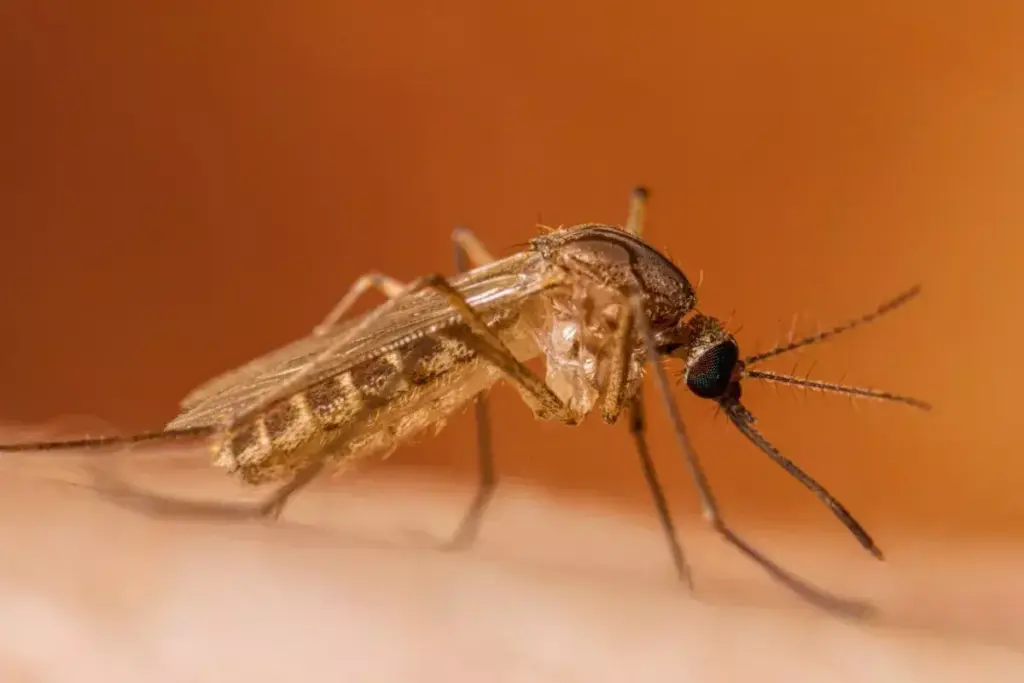Seasonal allergies hit over 60 million people each year. They cause a lot of discomfort and can mess up your daily routine. Finding quick relief from allergies is a big concern for many. That’s why people often ask, “How to get rid of allergies fast? when looking for effective solutions.
There are many ways to tackle allergies, from herbal remedies to making lifestyle changes. You can find ways to ease your allergies at home. We’re here to show you how.
Exploring strategies to relieve hay fever and reduce pollen allergy symptoms can help you manage allergies more effectively. This can greatly improve your health and well-being.
Key Takeaways
- Understanding the causes and symptoms of seasonal allergies is key to managing them effectively.
- Herbal remedies and natural treatments can offer relief from allergy symptoms.
- Making lifestyle changes, like adjusting your diet, can help ease allergy symptoms.
- It’s possible to find allergy relief at home with the right strategies and techniques.
- Trying different ways to manage allergies can help you find what works best for you.
Understanding Allergies: What They Are and How They Affect You

Allergies happen when our immune system mistakes harmless things for threats. This can cause a range of symptoms. We’ll look at what allergies are, their symptoms, types, and why knowing what triggers them is key.
Common Symptoms of Allergies
Allergies can make life hard with symptoms like sneezing and itchy eyes. In bad cases, they can cause anaphylaxis, a serious condition needing quick help. A top allergist says, “Knowing and managing symptoms is vital for a good life.”
- Sneezing and nasal congestion
- Itchy, watery eyes
- Skin rashes or hives
- Coughing and wheezing
Types of Allergies: Seasonal vs. Perennial
Allergies can be seasonal or perennial. Seasonal allergies happen when pollen is in the air, usually at certain times. Perennial allergies are always there, caused by things like dust mites or pet dander. Knowing the type helps manage it better.
The Importance of Identifying Triggers
Finding out what causes an allergy is a big step in managing it. Knowing the triggers lets people avoid them, which helps reduce symptoms. This might mean changing your environment or diet.
Keeping a diary of when symptoms happen can help find allergens. This way, people can take charge of their allergies and live better.
Conventional Allergy Treatments: A Quick Overview
It’s important to know about conventional allergy treatments. They help manage symptoms and improve life quality.
Over-the-Counter Medications
Over-the-counter (OTC) meds are a common first choice. Antihistamines like Benadryl and Claritin ease sneezing, runny nose, and itchy eyes. Decongestants like Sudafed help with stuffy noses.
- Antihistamines: Good for sneezing and itchy eyes.
- Decongestants: Reduces stuffy nose.
Prescription Options
For serious allergies, prescription medications are needed. These include stronger antihistamines, corticosteroids, and immunomodulators. They’re used when OTC meds don’t work.
- Corticosteroid nasal sprays for less inflammation.
- Oral corticosteroids for severe reactions.
- Immunomodulators that change how the body reacts.
Allergy Shots: Are They Right for You?
Allergy shots, or immunotherapy, offer long-term relief. They make your body less sensitive to allergens. Shots are best for those with severe allergies who’ve tried other treatments.
Benefits of allergy shots include:
- Long-term symptom relief.
- Less need for meds.
- Can change the course of allergies.
Herbal Treatments: Nature’s Remedies for Allergies
Nature has many ways to fight allergies. Herbal remedies are becoming popular as a natural choice. They offer a whole-body approach to dealing with allergy symptoms.
The Benefits of Herbal Treatments
Herbal treatments are good for people with allergies. They are seen as a natural option, which might mean less use of medicines. Some herbs can help with swelling, itching, and sneezing.
Key advantages of herbal treatments include:
- Natural and potentially fewer side effects
- Holistic approach to health
- Availability of various herbs for different symptoms
Popular Herbs: What Works for Allergies?
Many herbs can help with allergy symptoms. Some of these are:
- Butterbur: Known for its effectiveness in reducing seasonal allergy symptoms.
- Stinging Nettle: Recognized for its anti-inflammatory properties.
- Quercetin: A natural antihistamine found in various fruits, vegetables, and herbs.
These herbs can be used in teas, capsules, or tinctures. This makes it easy to add them to your daily routine.
How to Prepare Herbal Remedies
Making herbal remedies is easy. Here are some ways to do it:
- Teas: Steep dried herbs in hot water to make a soothing tea.
- Tinctures: Use concentrated herbal extracts, often taken sublingually or added to water.
- Capsules: Encapsulate dried herbs or herbal extracts for easy consumption.
It’s important to follow the right steps and talk to a healthcare professional before trying new herbal remedies. This is true if you’re already taking medicine or have health issues.
Specific Herbal Treatments for Allergy Relief
Looking for natural ways to fight allergies? Herbal treatments might be the answer. They offer a natural way to ease allergy symptoms. Many people use them as part of their treatment plan or on their own.
Stinging Nettle: A Potent Decongestant
Stinging nettle (Urtica dioica) has been used for centuries. Its leaves and roots have compounds that help with allergies. It’s known for reducing inflammation and congestion in the nose.
Using stinging nettle can help in several ways:
- It reduces inflammation in the nose
- It acts as a natural antihistamine
- It helps with itching and sneezing
Butterbur: Effective for Seasonal Allergies
Butterbur (Petasites hybridus) is good for seasonal allergies. It has compounds that fight inflammation and histamine. This makes it a great natural remedy for hay fever and other seasonal allergies.
Butterbur’s key benefits include:
- It reduces the severity of seasonal allergy symptoms
- It helps with nasal congestion and itching
- It’s a natural alternative to antihistamines
Quercetin: A Natural Antihistamine
Quercetin is a flavonoid in fruits, vegetables, and grains. It’s known for its antioxidant and anti-inflammatory effects. It acts as a natural antihistamine, helping to stabilize mast cells and prevent histamine release.
Quercetin offers several benefits for allergy relief:
- It stabilizes mast cells and reduces histamine release
- It has antioxidant properties that reduce inflammation
- It’s found in many common foods, making it easy to add to your diet
Lifestyle Changes to Complement Herbal Treatments
Making lifestyle changes can help manage allergies, working alongside herbal remedies. Simple adjustments can lessen allergy symptoms and boost overall well-being.
Dietary Adjustments for Allergy Relief
Eating a diet full of fruits, veggies, and omega-3s can ease allergy symptoms. Foods rich in antioxidants, like berries and greens, boost the immune system. Avoiding common allergens and using probiotics also helps.
Try eating local, raw honey to build a tolerance to local allergens. Drinking lots of water is also key. Staying hydrated helps thin mucus, making it easier to expel and reducing congestion.
Importance of Hydration
Drinking enough water is essential for managing allergies. It keeps nasal passages and sinuses moist, reducing irritation. Using saline nasal irrigation or sinus rinses can also help clear out allergens and mucus.
Drink hydrating foods like cucumbers, celery, and watermelon too. Avoid dehydrating drinks like caffeine and alcohol.
Creating an Allergy-Friendly Home
It’s important to make your home allergy-proof. Use allergen-proof bedding and vacuum with a HEPA-filter vacuum. Keep humidity low to stop mold.
Remove shoes before entering and wash hands often to keep out outdoor allergens. Closing windows during peak pollen times and using air purifiers also helps. These steps can make your home a safer space for allergy sufferers.
Essential Oils: Aromatherapy for Allergies
Aromatherapy uses essential oils to help manage allergies. It taps into the healing powers of plants to ease allergy symptoms. We look at how essential oils can help and how to use them safely.
Top Essential Oils for Allergy Relief
Some essential oils are great for easing allergy symptoms. Here are a few:
- Eucalyptus Oil: It’s good for breathing problems caused by allergies.
- Frankincense Essential Oil: It has anti-inflammatory properties that can lessen allergy symptoms.
- Mentha Piperita Leaf Essential Oils: Peppermint oil can clear congestion and make breathing easier.
How to Use Essential Oils Safely
Essential oils are helpful but must be used carefully. Here’s how:
- Dilute Essential Oils: Mix essential oils with a carrier oil before skin application to avoid irritation.
- Use a Diffuser: Diffusers are a safe way to enjoy essential oils indoors. They improve air quality and help with allergies.
- Consult a Professional: If you’re new to essential oils, talk to a healthcare professional or a certified aromatherapist. They can help ensure safe use.
Precautions When Using Essential Oils
To get the most from essential oils while staying safe, follow these tips:
- Quality Matters: Pick high-quality, pure essential oils from trusted sources.
- Allergic Reactions: Do a patch test on a small area before using a new essential oil to check for allergies.
- Pregnancy and Children: Some essential oils are not safe for pregnant women or young children. Always check with a healthcare professional before using.
Allergy-Proofing Your Environment
Making your space allergy-friendly is key to lessening allergen exposure and easing symptoms. Simple changes in your daily life and home can greatly reduce allergy issues. This can lead to better health and well-being.
Minimizing Indoor Allergens
Indoor allergens like dust mites, pet dander, and mold can worsen allergy symptoms. Using HEPA filters in your home, like in bedrooms and living areas, is a good start. These filters catch 99.97% of particles, including dust, pollen, and allergens.
Cleaning regularly is also vital. Use a damp cloth to dust and vacuum often with a HEPA-filtered vacuum. Think about replacing carpets with hardwood or tile to cut down on dust.
Outdoor Tips to Reduce Allergy Symptoms
While you can’t avoid outdoor allergens completely, there are ways to lessen exposure. For gardening, choose plants that don’t produce much pollen. Avoid plants that do.
Wear a mask when outdoors to filter pollen and allergens. Shower and change clothes after being outside to wash off pollen.
The Role of Air Purifiers
Air purifiers are important for cutting down indoor allergens. Look for ones with HEPA filters to remove allergens from the air. Place them in areas where you spend most of your time, like bedrooms and living rooms.
When picking an air purifier, think about the room size, filter type, and noise level. Some models have extra features like ionizers or UV light to help fight allergens.
By following these tips, you can make your environment more allergy-friendly. This can help you rely less on medication. As
“The key to managing allergies is to minimize exposure to allergens and reduce symptoms.”
” Allergy Expert
Understanding the Role of Immunity in Allergies
Our immune system and allergies have a complex relationship. This affects how we react to allergens. An allergy is when our immune system overreacts to things like pollen or certain foods.
This overreaction leads to symptoms like sneezing or swelling. In severe cases, it can be life-threatening.
How Allergies Relate to Immune System Function
Our immune system fights off harmful invaders. But with allergies, it sees harmless things as threats. This leads to the production of IgE antibodies, causing allergic reactions.
When we meet an allergen, our immune system releases histamine. This causes blood vessels to widen and muscles to contract. Symptoms can range from sneezing to anaphylaxis.
Boosting Your Immune System Naturally
Eating well can help manage allergies. A diet full of fruits, vegetables, and whole grains boosts our immune system. Foods like citrus fruits and leafy greens are great for this.
Drinking enough water is also key. It helps remove toxins and keeps our mucous membranes healthy. Adding probiotics to our diet supports gut health and immune function.
Supplements to Support Immune Health
Some supplements can help our immune system. Probiotics support a healthy gut, which is vital for our immune system. Vitamin C boosts our immune system and helps with allergies.
Quercetin is another helpful supplement. It acts as a natural antihistamine, reducing allergy symptoms. Always talk to a healthcare professional before taking new supplements.
When to Seek Professional Help for Allergies
If you’re dealing with ongoing or serious allergy symptoms, it’s important to know when to get help. Allergies can really affect your life, and some cases need professional help. While some can be managed with over-the-counter meds and lifestyle changes, others need a doctor’s care.
Signs You Need to Consult an Allergist
Certain symptoms and conditions mean you should see an allergist. These include:
- Severe or ongoing allergy symptoms that make it hard to do daily things
- Symptoms that don’t get better with over-the-counter or prescription meds
- Unclear or many allergy triggers
- History of anaphylaxis or severe allergic reactions
- Other health issues that make managing allergies harder
Spotting these signs early can lead to better care. An allergist can give a detailed check-up and create a treatment plan just for you.
Choosing the Right Healthcare Provider
Finding the right healthcare provider is key for managing allergies well. Think about these factors:
| Criteria | Description |
| Specialization | Make sure the provider is an allergist or has allergy care experience |
| Referrals | Ask for recommendations from your primary care doctor or friends |
| Insurance | Check if the provider is in your insurance plan |
By picking the right healthcare provider, you can get the best allergy care.
Preparing for Your Allergy Appointment
To get the most from your allergy appointment, preparation is important. Here’s what to do:
- Document Your Symptoms: Keep a detailed record of your symptoms, including when they happen and any possible triggers.
- List Your Medications: Bring a list of all medications you’re taking, including how much.
- Prepare Questions: Write down any questions or concerns you have about your allergies.
- Bring Relevant Medical Records: Include any past test results or medical records related to your allergies.
Being well-prepared for your appointment helps your healthcare provider understand your condition better. They can then create an effective treatment plan for you.
What to Expect from Herbal Allergy Treatments
Exploring herbal allergy treatments can be exciting. But, knowing what to expect is key. Herbal remedies have helped people for centuries, including those with allergies. It’s important to understand their benefits and limits.
Timeline for Relief: When to Expect Results
Herbal treatments work differently for everyone. Some see relief in days, while others take weeks. It’s best to wait 2-4 weeks to see if they work for you.
Factors Influencing Relief:
- The type and severity of allergies
- The specific herbal remedy used
- Individual health and immune response
Possible Side Effects of Herbal Remedies
Even though herbal remedies are natural, they can cause side effects. You might experience digestive issues, headaches, or allergic reactions. Always watch how your body reacts and adjust your treatment as needed.
| Herbal Remedy | Common Side Effects |
| Stinging Nettle | Gastrointestinal upset, allergic reactions |
| Butterbur | Headache, stomach discomfort, burping |
| Quercetin | Headache, tingling sensation, stomach upset |
Success Stories: Real Testimonials
Many people have found relief from allergies with herbal remedies. Here are a few success stories:
“After switching to herbal remedies, I noticed a significant reduction in my allergy symptoms within a month. I feel much better now.” – Emily R.
These stories show the good that herbal treatments can do. They work best when used right and with the right advice.
Conclusion: Combining Approaches for Best Results
We’ve looked at many ways to handle allergies, from traditional treatments to herbal remedies and lifestyle changes. By mixing these methods, people can create a strong plan to reduce their allergy symptoms.
A holistic approach to dealing with allergies means looking at all parts of a person’s health and surroundings. This includes using natural remedies like herbs, changing what we eat, and making our homes safe from allergies.
By using this wide-ranging strategy, we can manage allergies better and feel healthier overall. We suggest trying herbal treatments and other natural ways to go along with traditional treatments.
Managing allergies naturally takes time, effort, and a readiness to try new things. By combining approaches and sticking to a holistic approach, people can see big improvements in their allergy symptoms. This can make their lives much better.
FAQ
What are the most common symptoms of allergies?
Symptoms include sneezing, a runny or itchy nose, and nasal congestion. You might also have itchy or watery eyes. Sometimes, you might see skin rashes or have digestive issues.
How do I know if I have seasonal or perennial allergies?
Seasonal allergies happen at certain times, like pollen seasons. Perennial allergies are always there, often from things like dust mites or pet dander indoors.
What are some natural remedies for allergy relief?
Herbal treatments like stinging nettle, butterbur, and quercetin can help. Essential oils and changing your diet also offer relief. Keeping your home clean and using air purifiers is helpful too.
Can herbal treatments replace conventional allergy medications?
Herbal treatments can be good, but they might not work for everyone, like those with severe allergies. Always talk to a healthcare provider for advice.
How do I prepare herbal remedies for allergies?
You can make herbal remedies as teas, tinctures, or capsules. The method depends on the herb. For example, stinging nettle can be a tea or capsule.
Are there any side effects to using herbal allergy treatments?
Yes, some herbal treatments can cause side effects. This includes digestive issues or allergic reactions. It’s important to research the herb or talk to a healthcare provider about possible side effects.
How long does it take to see results from herbal allergy treatments?
Results vary. It depends on the person, the herbal treatment, and how bad the allergies are. Some see relief in a few days, while others take longer.
Can essential oils be used to relieve allergy symptoms?
Yes, oils like eucalyptus, peppermint, and lavender can help. But, use them safely, dilute them properly, and they might not work for everyone.
How can I allergy-proof my home?
To reduce indoor allergens, clean regularly and use allergen-proof bedding. Lower humidity and use air purifiers. Outdoors, avoid peak pollen times and wear protective gear.
When should I consult a professional for my allergies?
If your symptoms are severe, last a long time, or affect your daily life, see an allergist or healthcare provider. They can give you personalized advice, diagnose allergies, and suggest treatments.
Can boosting my immune system help with allergies?
Yes, a strong immune system can manage allergies better. Eat well, drink plenty of water, and consider supplements to support your immune health.
Are allergy shots a viable option for me?
Allergy shots, or immunotherapy, can be a good long-term solution for some. Talk to a healthcare provider to see if they’re right for you.
How can I support my immune system naturally?
Eat a balanced diet with fruits, vegetables, and whole grains. Stay hydrated, exercise regularly, and get enough sleep. These actions help keep your immune system strong.










